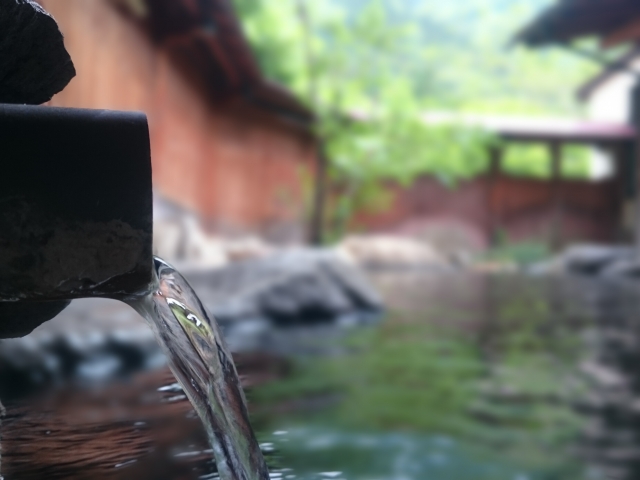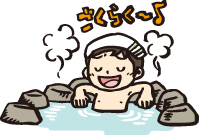 Onsen is important culture for Japanese people.
Onsen is important culture for Japanese people.
We go to Onsen trip with our families,friends,couples and company groups.
It is one of the happiest moment for us to soak and relax in the hot spring after eating gorgeous foods such as seafoods, crabs,and beef!
I hope more foreign tourists will have traditional Japanese Onsen experience.
But do you know there are several etiquettes to remember when you go to Onsen?
I would like to share with you 8 important Onsen Etiquettes in Japan!
Local tells 8 Onsen Etiquettes in Japan!Important Japanese Manners
1.No tattoos are allowed as a general rule
Many onsen in Japan do not allow people with a tattoo to use their facilities.The main reason is because most Japanese people associate tattoos with the Japanese mafia.
It used to be Tattoos in Japan (called Irezumi in Japanese)were mostly seen on members of them.They tend to have tattoos all over their bodies.
Therefore some Japanese automatically feel scary when they see someone who has tattoos on their body.
Or we think we might get in trouble if we get close to people with tattoos.
Most Onsen facilities are afraid that the people with tattoo could scare away other customers.
Japanese people are getting understand that Tattoos are considered as arts, and it is largely accepted by western countries.
But for this reason,most onsen facilities don’t allow customers with tattoos so far.
2.Long hair should be tied up
You should not let your hair soak in the water.People with long hair should tie it up before entering the bath.Imagine that you are soaking in Onsen, and somebody’s hairs are floating on it:)
You don’t feel good,do you?
Tying up your hair will prevent loosing hairs from floating around the bath.
3.Do Kake-yu, rinse your body with hot water
Kake-yu means to pour water over your body.It should start from the feet, then heart,the hands, and gradually upwards and finish with the head.
There are two reasons for doing kake-yu.
One is to clean yourself.
If you don’t rinse off the dirt and sweat with kake-yu,it will make the Onsen water dirty.
The Other reason is that your body need to get used to the hot water.
If you suddenly getting into the bathtub while your body is cold, it may cause your blood pressure rise quickly due to temperature differences.
kake-yu is important to prevent the sudden change of blood pressure.
It is better to wash yourself with a soap before entering the bath,but this is not a must if you rinse your body thoroughly with the kake-yu.
4.Don’t wash your head and body in the bathtub
Scrubbing your body in the bathtub will make the Onsen water dirty.You can wash your body and hair at the washing space.When you rinse your body, be careful not to splash anyone around you.
I have once splashed water on others without notice.I apologized to them at that time.
5.Photography is not allowed
Most of the Onsen don’t allow you to take photographs and video in the Onsen and in the locker room.I couldn’t use my iPhone in the locker room in several Onsen facilities because it has a camera.
If you wish to photograph Onsen and surrounding scenery, ask the staff before taking any photos.
6. No swimsuits are allowed
In most of Onsen,People bathe naked.Foreigners might be worried about this custom,but this is very natural for Japanese.
Most Japanese have grown up with the custom of naked at Onsen or public bath, so we are not embarrassed by it.
Therefore, no one cares when everyone is naked, so you don’t have to be embarrassed by it at all.
Some foreign customers want to wear towel into the bath,but that is not allowed at Onsen for sanitary reasons.
It may take time for a while to get used it, but you’ll get over it!
But if you feel too uncomfortable to be naked in front of other people, I recommend you to use private Onsen.
Some Onsen facilities have private-use Onsen, so you can check if it’s available.
7. Don’t put towels in the bathtub
You are required to set your towel off to the side of the water, or place it on top of your head while bathing.You can leave it on top of your head like the picture below.
If you say”Gokuraku Gokuraku” while you soak in the Onsen leaving the towel on top of your head,it’s a typical Japanese style to enjoy Onsen!(Gokuraku means paradise or heaven in Japanese)

8.Wipe your body before getting back to your locker
To keep the locker room dry and clean, you should wipe yourself lightly with your towel before entering there.I don’t recommend you to shower after the Onsen to obtain the minerals and medical benefits in Onsen water.
The Onsen water has various effects such as easing fatigue and keeping you in good health.
It is said the effects of onsen last for 3 hours if you don’t rinse it off.
Lastly, let me summarize briefly about 8 important Onsen Etiquettes
8 important Onsen Etiquettes
- No tattoos are allowed as a general rule
- Long hair should be tied up
- Do Kake-yu, rinse your body with hot water
- Don’t wash your head and body in the bathtub
- Photography is not allowed
- No swimsuits are allowed
- Don’t put towels in the bathtub
- Wipe your body before getting back to your locker
These Etiquettes are all important and based on a feeling of consideration toward others. Good manners and courtesy make people comfortable.
I hope this guide will help you to enjoy traditional Japanese Onsen experience!
Click here for related information:
Local tells Top 5 best Onsen in Osaka!Enjoy Hot springs in the City!
Local tells Top 5 best Ryokans in Kyoto!Experience Japanese hospitality!
Local tells Top 5 best Ryokans in Arashiyama,Kyoto!Luxury Inn with a great view
